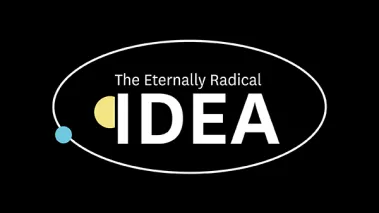Table of Contents
Why the ‘Harvard Law Review’ comment defending campus speech codes matters

This article appeared in The Huffington Post.
Today the good folks over at the Law Librarian Blog (LLB) picked up on the recent kerfuffle surrounding a student-authored case comment that appeared in the April issue of the Harvard Law Review. The HLR comment--published unsigned, per the journal's policy--strongly criticized the United States Court of Appeals for the Third Circuit's 2008 decision to overturn Temple University's speech code, arguing that speech codes are constitutional and that the case (DeJohn v. Temple University, 537 F.3d 301 (3d Cir. 2008)) was wrongly decided.
Kelly Sarabyn, my colleague at the Foundation for Individual Rights In Education, tore the comment to pieces in an extensive post earlier this month. Kelly's response emphasized that the comment failed to cite a single case in the 20 year history of speech code litigation, misrepresented and ignored relevant Supreme Court holdings, and matter-of-factly asserted that college students should have even fewer rights to speak freely than grade school students or private employees in professional offices.
LLB also cites a blog by a former FIRE president and our current legal director to conclude that "obviously FIRE is trying to minimize the impact the comment may have by all means possible." And LLB is absolutely right--though they did miss the funniest blog post of all on the comment, published over at Riley Waggman's Diploma Mill blog.
One might wonder why we are so concerned with a single student-authored law review comment. Glad you asked. I'm happy to list some of the reasons:
First, despite all the law to the contrary and no less than eight prior decisions ruling speech codes unconstitutional, what some might consider to be the premier law journal in the country published a comment legitimizing campus speech codes. That's a problem because while speech codes have had the law uniformly against them for decades now, as many as three quarters of the universities in the country still maintain unconstitutional speech codes. As a result, these scofflaw institutions are glad to grab any ammunition to defend their speech codes that they can find--even a sloppy, shoddy unsigned student comment in the Harvard Law Review.
Second, and demonstrating my first point, is the fact that almost as soon as the comment was published, it was cited it in a motion defending a campus speech code in Los Angeles. LLB implicitly recognizes how remarkable this is by asking readers "When was the last time you saw a student comment achieve this level of debate or be cited in pleadings so quickly?" The defenders of speech codes need a leg to stand on, and comments like this in journals like the Harvard Law Review have a real-world impact.
Third, this comment demonstrates that after 20 years of universities trying to dupe the public into believing that speech codes are okay by simply recharacterizing them as harassment policies? codes, people in influential positions are finally starting to believe them. It only goes to show that if you repeat a lie long enough, people forget what the truth is. The HLR comment indicates that the misinformation campaign in favor of speech codes is winning in the court of public opinion, even while every single case in a court of law has been a loss.
Fourth, the comment entirely ignores the harm of speech codes in the first place. It argues that the court should have only considered the code if it had been directly applied to a particular student who then brought a suit. What the author fails to understand is that unconstitutional restrictions on free speech are harmful in and of themselves. Let's say, for example, Congress passed a law declaring that no criticism of the president is allowed. The existence of such a law would cause most people who are either afraid or law-abiding (or some combination of the two) to shut up about the president. Even if Congress claimed that it didn't, in fact, plan to enforce this law, it wouldn't matter, as it would still have a chilling effect on speech. Same with speech codes on campus--their mere existence chills speech on campus, because students know that they run the risk of punishment for engaging in protected but unpopular speech. That's unacceptable.
There is another crucial harm that speech codes cause: They are miseducating an entire generation about their free speech rights and the free speech rights of others. This HLR comment is genuine evidence of this fact.
I could go on about the dangers of speech codes, and indeed you can see numerous insane examples of abuses of speech codes in my previous Huffington Post blogs and hear about them in my recent interview with Reason magazine. But the final reason why the HLR comment was so frustrating to us was that it relied on shoddy, unforgivably incomplete research to reach a conclusion that limits the rights of their fellow students. That is more than ironic, it's more than frustrating; frankly, it's unworthy of such a venerable publication.
Recent Articles
FIRE’s award-winning Newsdesk covers the free speech news you need to stay informed.

FIRE to SCOTUS: TikTok ban violates Americans' First Amendment rights

California and other states are rushing to regulate AI. This is what they’re missing

One day after FIRE lawsuit, Congress passes changes to filming permits in national parks
